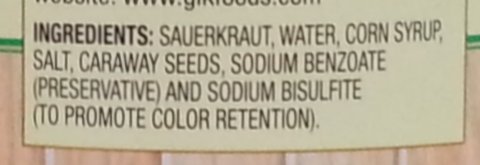
Professor Michael D. Gershon, M.D., heads the Department of anatomy and cell biology at Columbia University. If you have ever heard the gut referred to as “The second brain,” you’ve been exposed to the core of something Dr. Gershon is fascinated by: The bowel’s enteric nervous system is the only part of the peripheral nervous system that can respond by itself – without prompting by the brain or spinal cord.
Have you ever noticed the stomach often uses what are typically known as “emotional” signals? Do you ever just KNOW something … and liken it to a “gut feeling”? Have you ever faced the microphone as a public speaker or performer and felt “butterflies” in your stomach?
The search to explain responses like these led researchers to realize the gut is more than just an efficient means of moving food through the body while extracting nutrients. The gut is not only important for nutrition, but is significantly tied to emotional well-being and immune system functioning. Exactly how far-reaching gut activities are is still under scientific scrutiny – but there is no denying it is much more important than we thought.
Returning to the roots of medicine
It is funny, in a way, that the ancient physician known as “The father of western medicine” held many beliefs that schools of medicine eventually moved away from – but are now beginning to re-embrace. Here are a few examples of Hippocrates’ thoughts in the 4th and 5th centuries B.C.
- Let food be thy medicine and medicine be thy food
- Walking is man’s best medicine
- It’s more important to know what sort of person has a disease than to know what sort of disease a person has
Organic foods at the supermarket and the popularity of walking and running for exercise testify to the bard’s wisdom.
Another famous quote by Hippocrates is “All disease begins in the gut.” Current and ongoing medical research is proving how true that statement really may be.
The foundations of gut health
We’ve written elsewhere concerning gut flora and the new research surrounding it. We have also touched on food digestion and gut health, and we have talked about the potential health benefits of non-pasteurized cultured foods and raw foods.
You’ve heard that fish is a “brain food,” and that omega-3’s from fish help the brain work better. If the gut is the “second brain,” are there foods to help it work better?
Turns out there are. One group of such foods are termed “probiotics.” These foods help increase the numbers of beneficial microorganisms in the gut, thereby giving a boost to gut health. And, if Hippocrates was correct, that is where the center of wellness resides.

The microbiological war inside of you
There is a battle going on in your intestinal tract. The trillions of microorganisms that live there are vying for control. When one of them succeeds at breaking loose, and begins to multiply too rapidly, troubles can arise quickly. Candida albicans, for example, produces the familiar “yeast infection” that plagues so many people. And it all begins in the gut.
In order to make sure the “good microorganisms” aren’t overrun by the “bad ones,” it is a good idea to supplement their numbers. You can do that by eating probiotic foods. Probiotics are foods that contain live cultures of good bacteria.
Foods that increase friendly gut flora
This isn’t an exhaustive list, but here are five of the most popular foods containing probiotics:
- Yogurt – Be careful here. Read the label. All yogurt is not created equally. Many brands sound and look healthy, but are loaded with sugar (feeds yeast) and artificial colors. Moreover, the probiotic content can vary widely. Choose organic when possible. A general rule is the shorter the contents list, the better the product.
- Sauerkraut – An old-time favorite food, fermented from cabbage. As with yogurt, however, make sure to read the label. The closer to raw cabbage and salt as ingredients, the more probiotic value you are likely to find. Definitely avoid preservatives. They can kill probiotic bacteria — both in the jar and in your gut.
- Kombuchu – Easy to make at home and a favorite drink for probiotic lovers, kombuchu is tea fermented from a mother culture known as the SCOBY (symbiotic colony of bacteria and yeast). It’s fun. It’s delicious, and it’s really healthy.
- Kefir – The best is made from goat’s milk, kefir grains, and fresh berries. The problem with cow’s milk is a mutated beta casein protein that can cause health problems. Not all cows produce milk with the mutated protein, but since milk gets mixed during processing, it is difficult to track. As with everything you eat or drink, choose organic whenever possible. Kefir is not only healthy, but really tasty.
- Pickles – Grandma’s cellar was well-stocked with sauerkraut and pickles for a very good reason: they are foods that promote health. Our modern diet loves to pasteurize, sterilize, and chemicalize. Choose pickles as close to natural as possible … definitely no preservatives and preferably organic
Here’s a tip, concerning cultured dairy products:
Beyond Organic makes small-batch milk products from cows that do not have the A1 beta casein gene. The animals are 100% grass fed, and the products are cultured with over 30 different probiotics. Dr. Haley recommends the plain Amasai, because it doesn’t contain sugar. Beyond Organic’s raw cheese is also probiotic.
There is much more to know about gut health, but beginning to choose and use probiotic-friendly foods is a good place to start. Some people notice a dramatic change in how they feel after only a week or so of purposely consuming foods rich in probiotics. If health begins in the gut … then the gut is definitely the place to begin!
Is Aloe vera probiotic?
You may be wondering, though: Why are we so excited about probiotics — since Aloe isn’t on our list of the most popular probiotic foods?
Here is why:
First, our concern is for your health. If we find something that can help get and keep you well, we are going to let you know — whether we carry the product or not.
Secondly, Aloe does have some probiotic value. All raw, natural foods that haven’t been pasteurized carry probiotics to some extent.
Third, Aloe vera is well established among the healing and immune-boosting super-foods. But did you know that Aloe is a rich source of prebiotic materials? Prebiotic foods help the good microorganisms flourish. In other words, if probiotics are the horses, then prebiotics are the hay … and you need both to have a healthy team. Moreover, it may be (and we will talk about this more in a future article) that the synergism between probiotics and prebiotics raises the ante to a much higher level. The maximum health benefit may be realized when both are consumed together.
Do you have questions about probiotics, prebiotics, or do you have recipes to share? We invite you to join the conversation, either by leaving a comment below or by visiting the Ask Us a Question page on this site.
Remember: Stockton Aloe is on your side. We care for you … naturally.
